Yoga for Beginners to Improve Flexibility
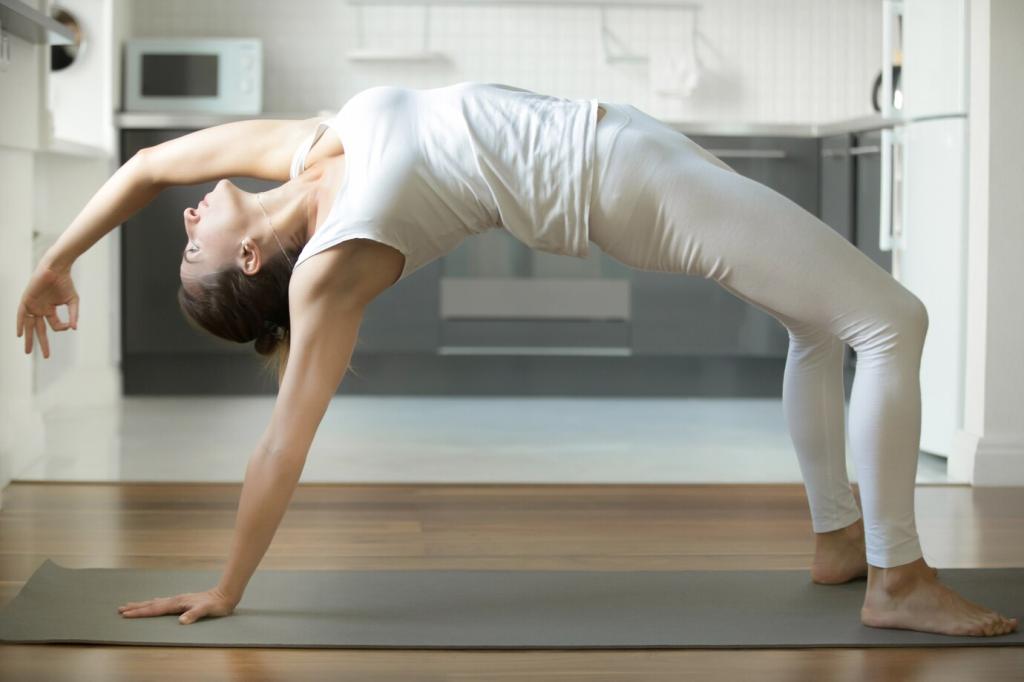
Warm Up the Right Way
Before deeper stretches, spend five to eight minutes moving gently: ankle circles, shoulder rolls, cat–cow, and easy hip swings. These motions warm tissues, circulate synovial fluid, and tell your nervous system it is safe to explore new ranges. Comment with your favorite warm-up move.
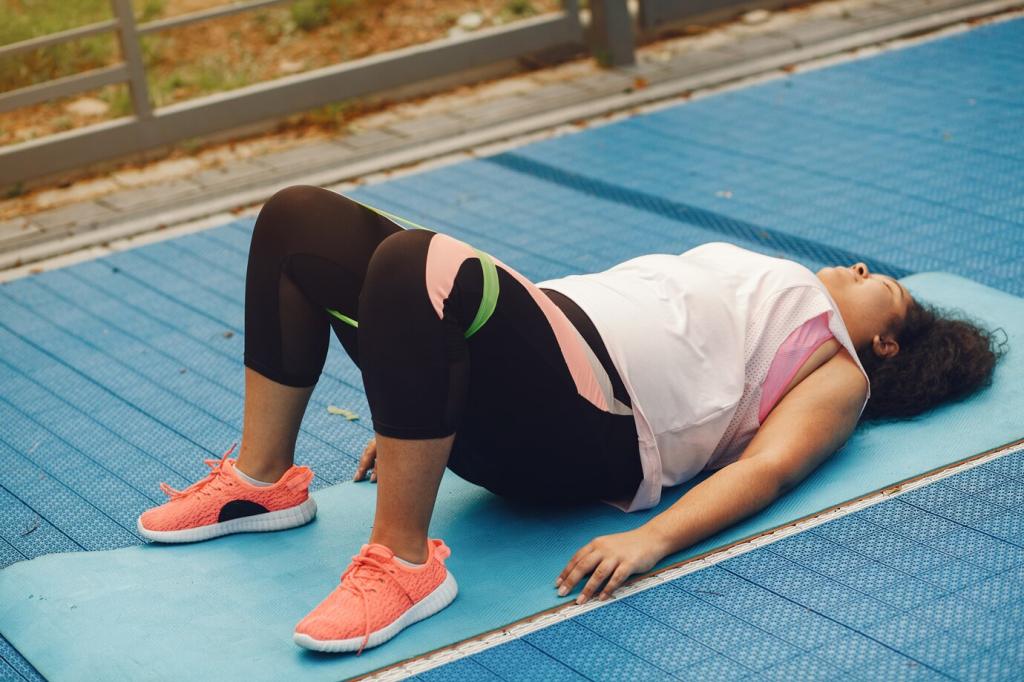
Know Your Flexibility Baseline
Quick, beginner-friendly checks help you notice real progress: a sit-and-reach with a book as a marker, wall calf stretch depth, or neck rotation measured by a fixed point. Record today’s baseline in your notes and share one metric you will revisit in two weeks.
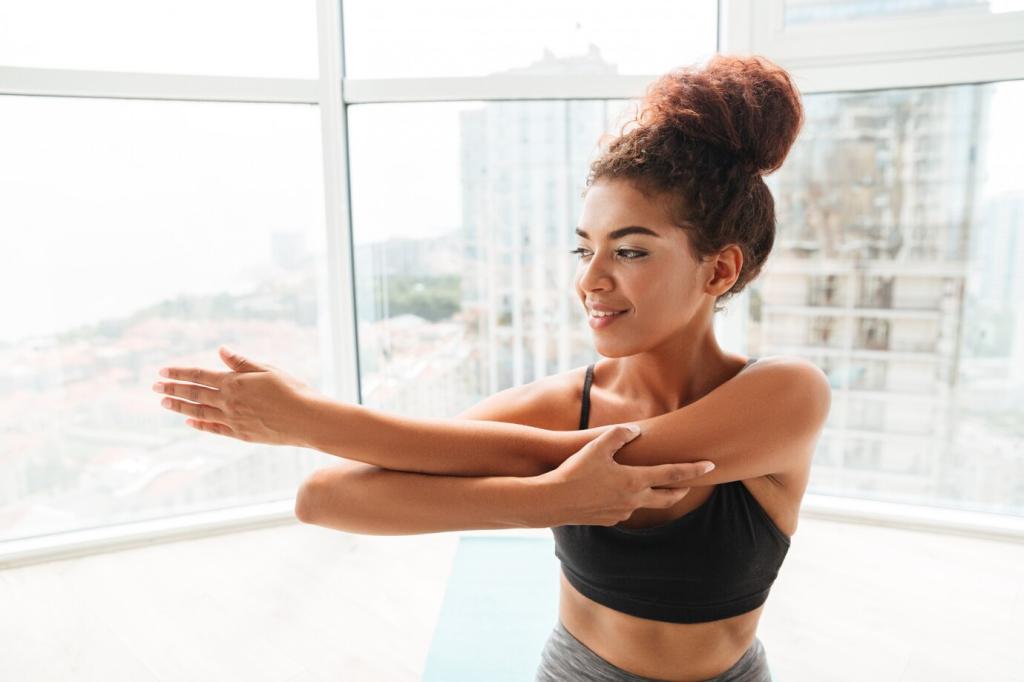
Set Intentions You Can Keep
Start with small, encouraging goals: ten minutes, three days each week, focused on hips and hamstrings. Attach practice to an existing habit—after morning coffee or before bed. Post your intention below, then return next week to celebrate what changed in your body and mood.
Foundational Poses to Gently Open the Body
Pedal your heels, bend your knees generously, and lengthen your spine more than your legs. Think of creating space through calves, hamstrings, and back without forcing straight knees. If your wrists tire, take Dolphin or use blocks. Tell us whether bending knees helps your back feel longer.
Foundational Poses to Gently Open the Body
Pad the back knee with a folded blanket. Reach the tailbone down as the chest lifts, letting the front of the hip soften. Keep front knee stacked above ankle. Add a side bend to target psoas gently. Notice the breath deepen as hip space appears. Share your afterfeel.
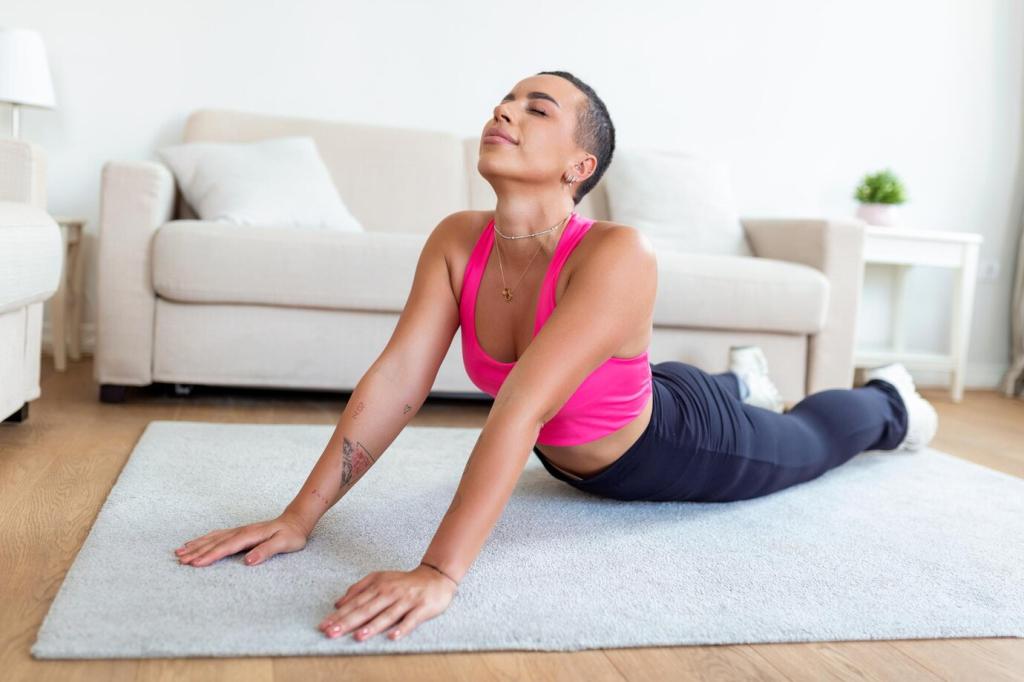
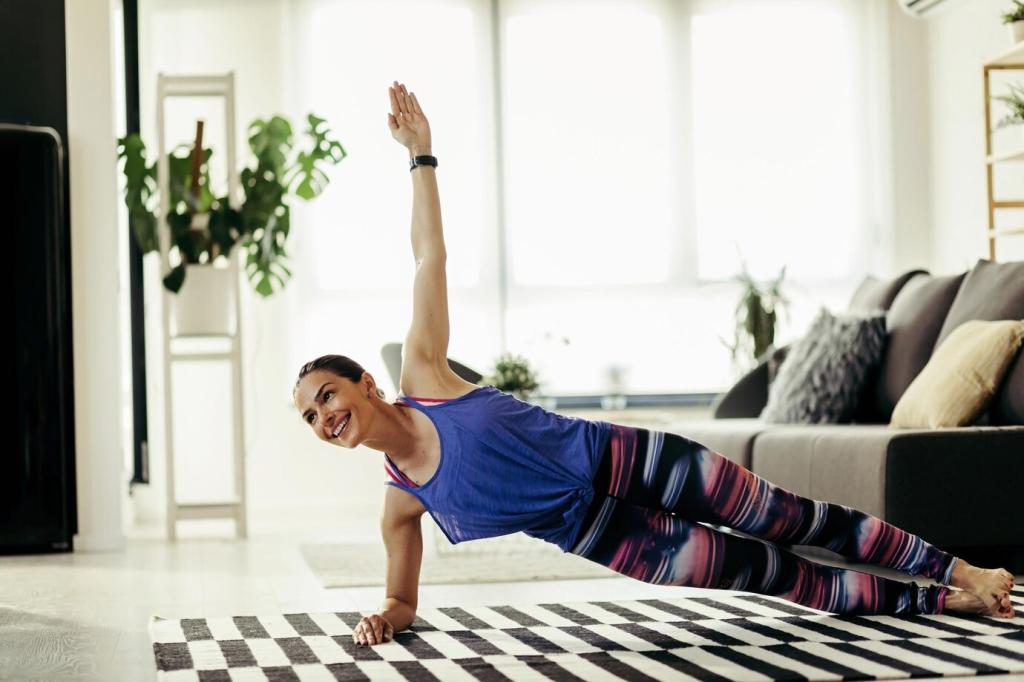
Breathwork that Softens Resistance
Place one hand on your belly, one on your ribs. Inhale through your nose, let the belly rise; exhale, soften the jaw and shoulders. Try five slow cycles before each stretch. Many beginners notice immediate ease. Share if this simple setup helped you settle deeper without force.
Breathwork that Softens Resistance
Inhale four, hold four, exhale four, hold four—repeat for two minutes. This balanced rhythm steadies attention and reduces tension guarding. Use it before challenging hip openers. If holding feels edgy, shorten the holds. Tell us which count works best for your body right now.
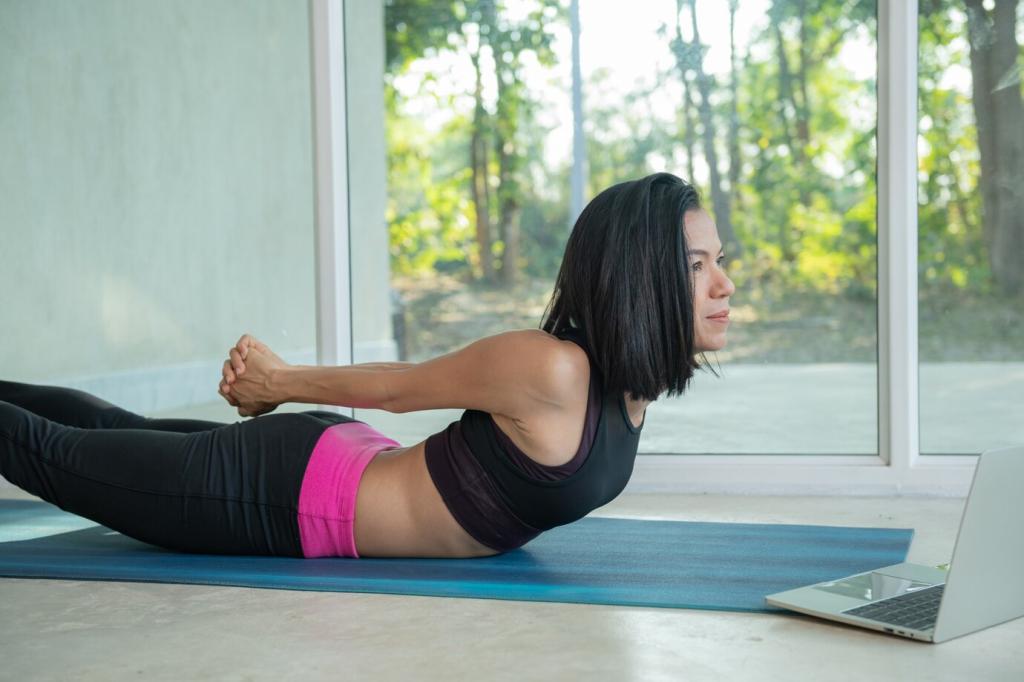
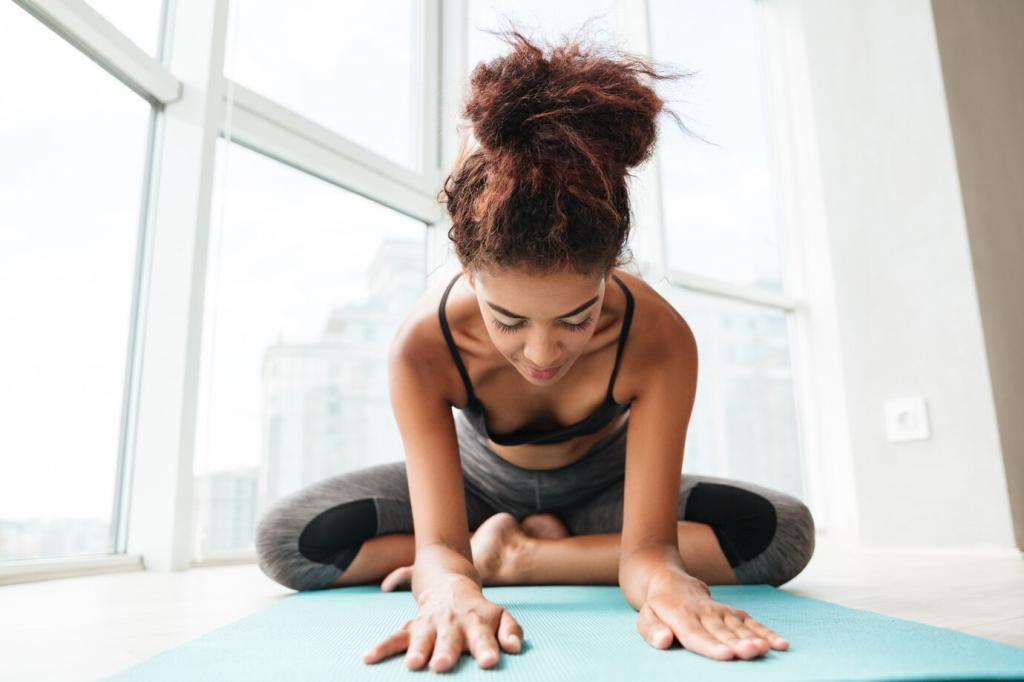
10-Minute Morning Mobility Flow
Begin with three minutes of breath, then Cat–Cow, Low Lunge, Half Splits, and a supported Forward Fold. Finish with a seated twist. Keep movements curious and light, not heroic. Save this structure and check in after one week—did your first steps of the day feel less creaky?
Desk Break Stretch Circuit
Stand up every ninety minutes: neck nods, shoulder flossing with a strap, standing quad stretch holding a chair, and Calf Raises. Two rounds take four minutes. This mini-circuit keeps tissues hydrated and responsive, making evening yoga easier. Share your favorite desk-friendly stretch variation.
Evening Unwind Ritual
Dim lights, play soft music, and spend eight to twelve minutes in supported Child’s Pose, Legs Up the Wall, and Reclined Figure Four. Longer exhales cue relaxation. Journal one sentence about how your body feels after. Invite a friend to try it and compare notes tomorrow.
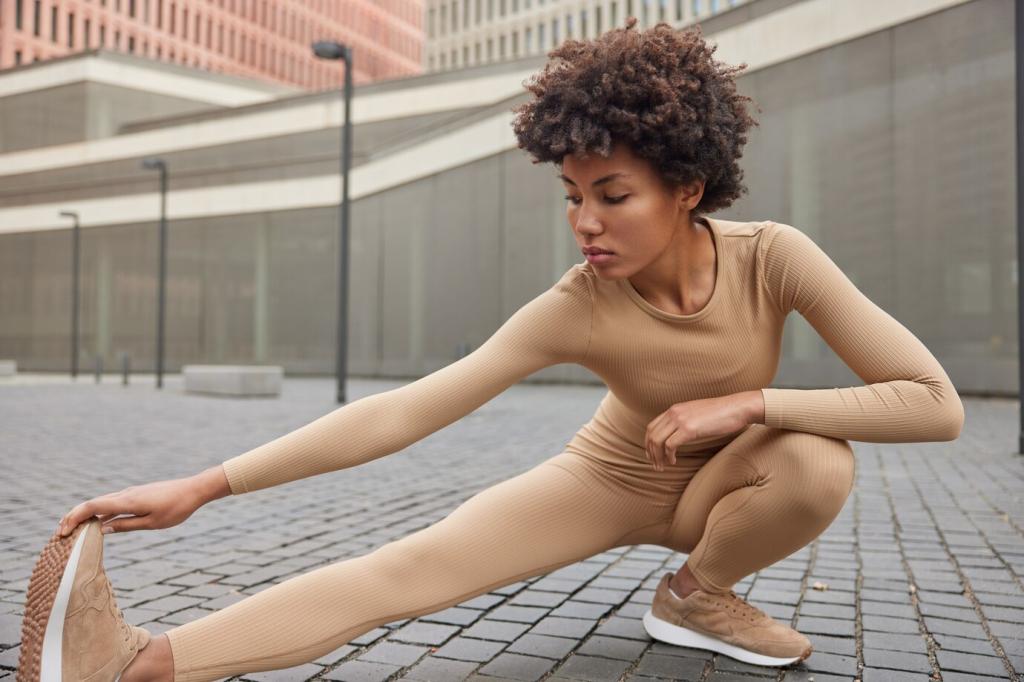
Avoid These Common Beginner Mistakes
Chasing Pain Instead of Sensation
Sharp or pinching pain is not progress—it is a red flag. Aim for gentle stretch and steady breath. If breath gets choppy, ease out. Use props before you think you need them. Comment with one pose where you will intentionally dial the intensity down tonight.
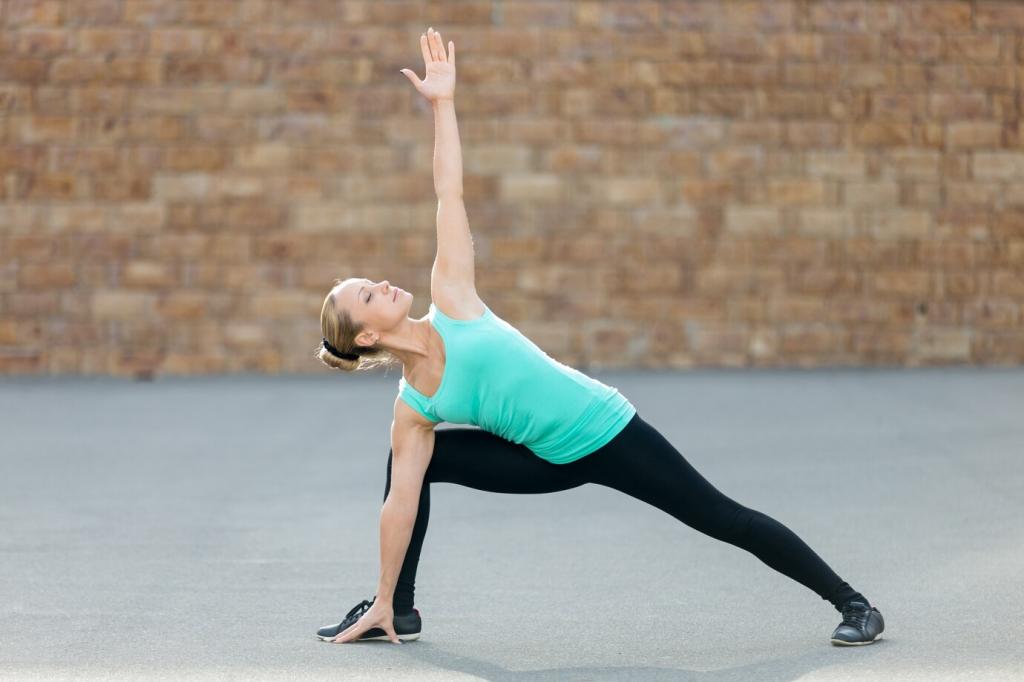
Recovery, Progress Tracking, and Consistency
Use simple markers: fingertip distance from toes, lunge depth noted by tile lines, or shoulder range measured against a wall. Celebrate two-millimeter wins. Snap a monthly photo to see posture changes you may not feel day-to-day. Share your favorite low-tech tracking method with our community.
Recovery, Progress Tracking, and Consistency
On rest days, try an easy walk, gentle mobility circles, or short breathwork. These keep circulation flowing and reduce stiffness. A tennis ball under the feet can refresh the whole chain. Comment with one recovery habit you will pair with your beginner yoga practice this week.
Recovery, Progress Tracking, and Consistency
Cue, routine, reward: roll out your mat after brushing your teeth, follow a ten-minute flow, then sip herbal tea while logging a checkmark. Keep friction low. If you miss a day, restart without drama. Invite a friend to be your accountability partner and report back Friday.
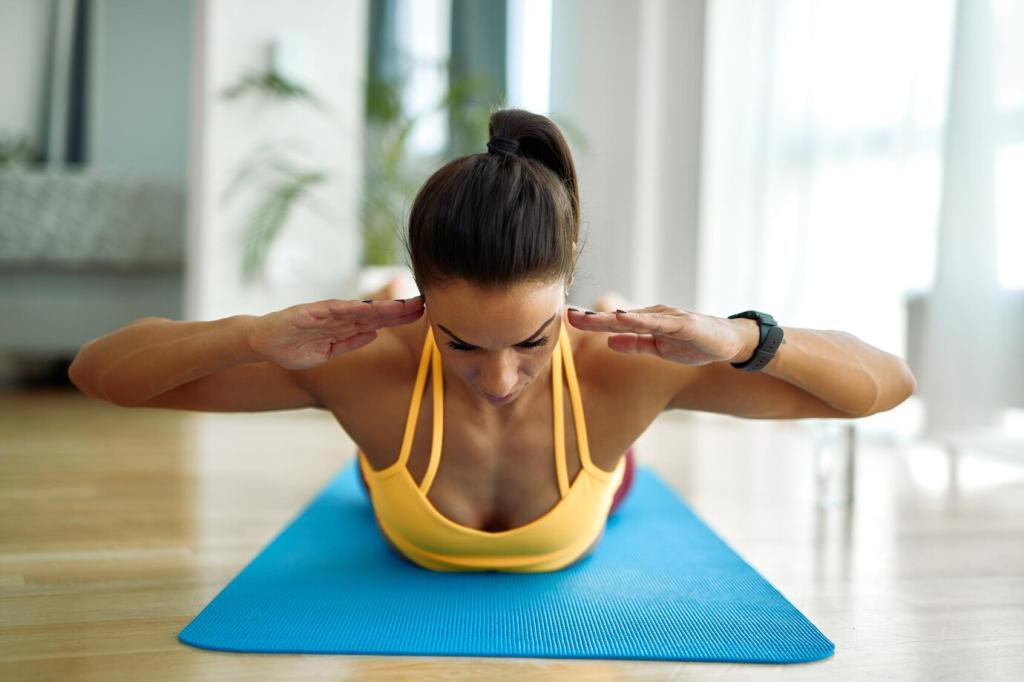
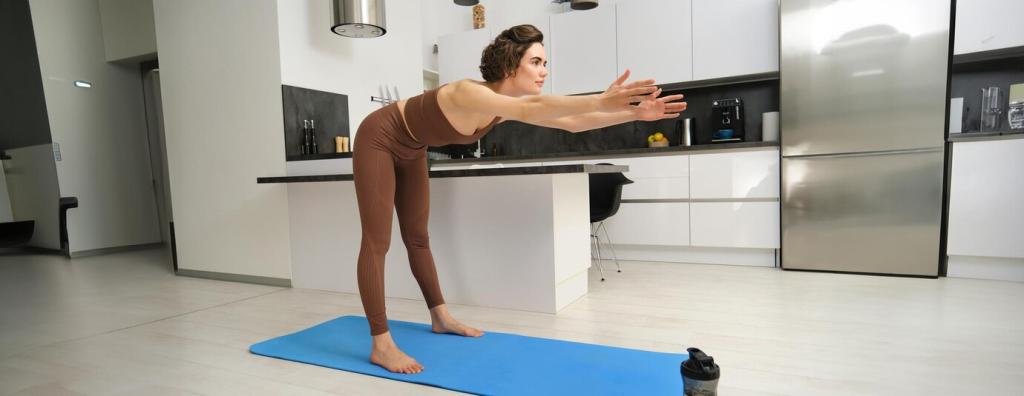
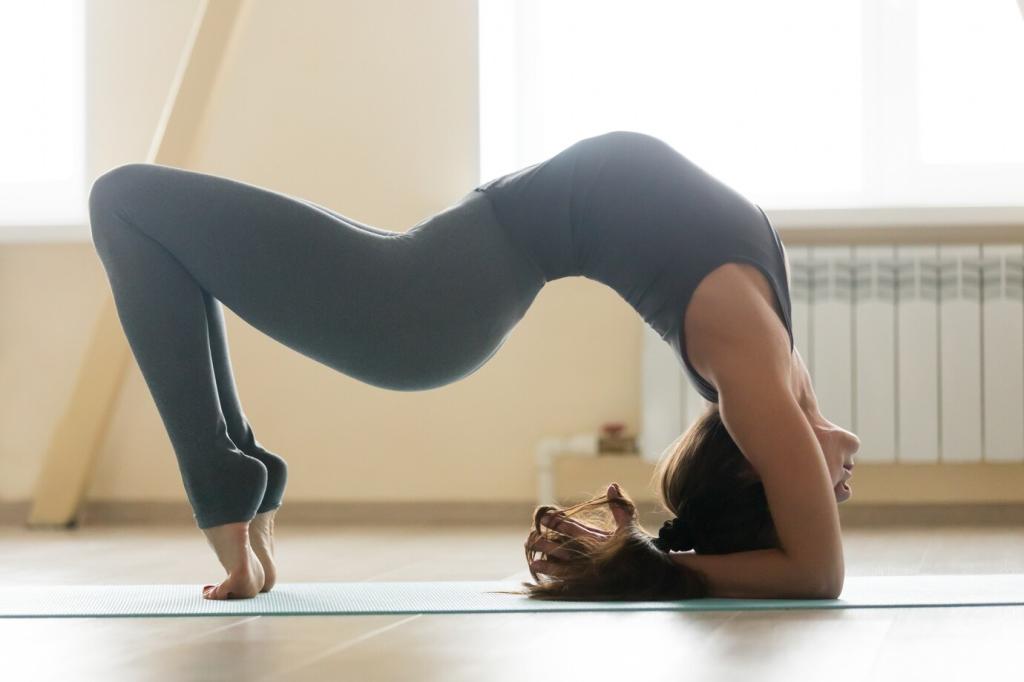
Props, Space, and Playlist
A strap extends your reach in folds; blocks lift the floor in lunges and Down Dog. These supports reduce strain and invite steady breath. They are not shortcuts—they are smart scaffolding. Tell us which prop changed a pose from frustrating to friendly for your beginner body.
